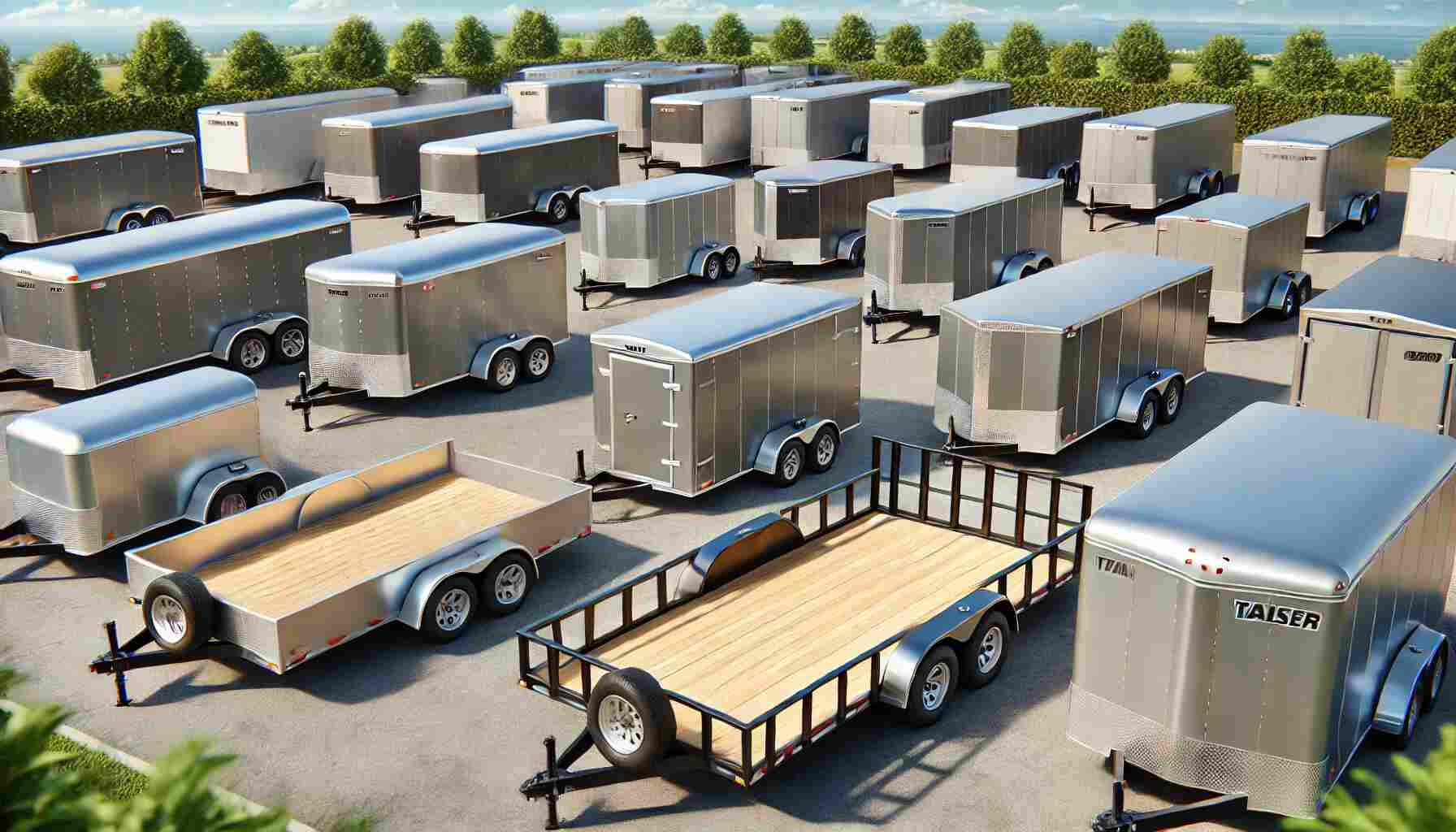When it comes to utility trailers, understanding their weights is essential for safe and efficient hauling. Whether you’re moving furniture, landscaping equipment, or construction materials, knowing the weight of your trailer and its load can save you from potential fines, wear and tear on your vehicle, and unsafe driving conditions.
What Is Utility Trailer Weight?
Utility trailer weight refers to the total weight of the trailer, which is divided into two main categories:
- Unloaded Weight (Dry Weight): The trailer’s weight without cargo or accessories.
- Gross Vehicle Weight Rating (GVWR): This is the maximum total weight the trailer can safely carry, including the trailer’s weight and the cargo.
Types of Utility Trailers and Their Average Weights
The weight of a utility trailer varies based on its size, material, and design. Here’s a breakdown of common types:
1. Small Utility Trailers (4’ x 6’ or 5’ x 8’):
- Unloaded Weight: 400-800 lbs
- GVWR: Up to 2,000 lbs
- Use Case: Ideal for light-duty tasks like hauling garden supplies or small furniture items.
2. Medium Utility Trailers (6’ x 10’ or 6’ x 12’):
- Unloaded Weight: 1,000-1,500 lbs
- GVWR: 2,500-3,500 lbs
- Use Case: Suitable for landscaping equipment, ATVs, or small construction materials.
2. Large Utility Trailers (7’ x 16’ or larger):
- Unloaded Weight: 1,800-2,500 lbs
- GVWR: Up to 7,000 lbs
- Use Case: Heavy-duty applications like transporting large machinery or multiple pieces of equipment.
3. Specialized Utility Trailers (Flatbeds, Enclosed, etc.):
- Unloaded Weight: Varies widely (800-3,000 lbs)
- GVWR: 5,000-10,000 lbs
- Use Case: Enclosed trailers protect cargo, while flatbeds are perfect for oversized items.
Relate: Average Trailer Weights by Type
Factors That Affect Utility Trailer Weight
Several factors influence the weight of a utility trailer:
- Material:
- Steel Trailers: Heavier but more durable.
- Aluminum Trailers: Lightweight and corrosion-resistant, making them ideal for towing smaller vehicles.
- Design:
- Trailers with additional features like ramps, side rails, or enclosed tops tend to weigh more.
- Accessories:
- Adding toolboxes, racks, or spare tires can increase the overall weight.
- Load Distribution:
- Unevenly distributed cargo can cause instability and may exceed axle weight limits.
How to Calculate Towing Capacity
Before hauling a utility trailer, ensure your vehicle can handle the load safely. Here’s how to calculate towing capacity:
- Check Your Vehicle’s Manual: Look for the manufacturer’s specified towing capacity.
- Understand Tongue Weight: The trailer exerts a downward force on the hitch. It should be 10-15% of the trailer’s total weight.
- Factor in the Gross Combined Weight Rating (GCWR): This is the maximum allowable weight of your vehicle, passengers, cargo, and trailer.
For example, if your vehicle’s GCWR is 12,000 lbs and its weight is 5,000 lbs, you have 7,000 lbs remaining for your trailer and its load.
Legal Considerations for Trailer Weights
- Weight Limits by State: Many states have specific weight limits for trailers, so it’s essential to know the regulations where you’ll be driving.
- Braking Requirements: Trailers over a certain weight (usually 3,000 lbs GVWR) must have their braking system in most states.
- License Requirements: Some jurisdictions may require a driver’s license or endorsement if you tow a heavy trailer.
Tips for Managing Utility Trailer Weights
- Use a Scale: Many truck stops and weigh stations offer scales where you can measure the weight of your loaded trailer.
- Distribute Weight Evenly: Place heavier items over the axle and secure them with straps to avoid sway or instability.
- Inspect Tires and Brakes: Ensure the tires are rated for the trailer’s GVWR and that the braking system is functional.
- Don’t Overload: Exceeding the GVWR can lead to fines, vehicle damage, and accidents.
Why Understanding Trailer Weights Matters
Ignoring trailer weight guidelines can have serious consequences. Overloading can damage your vehicle’s engine, transmission, and suspension. Worse, it can lead to accidents on the road. Understanding and managing utility trailer weights ensures a safer, more efficient towing experience.
FAQs About Utility Trailer Weights
Q: Can I tow a utility trailer with a small car?
A: It depends on the car’s towing capacity. Compact trailers with an unloaded weight under 1,000 lbs may be suitable for small vehicles.
Q: Do I need a special license to tow a trailer?
A: Most utility trailers don’t require a special license, but larger trailers may, depending on your state’s regulations.
Q: How do I reduce the weight of my trailer?
A: Opt for lightweight materials like aluminum and avoid unnecessary accessories.
Conclusion
Utility trailer weights are a critical factor in safe and legal towing. By understanding the types of trailers, weight categories, and towing capacity of your vehicle, you can prevent issues on the road and get your cargo where it needs to go safely. Whether you’re a weekend warrior or a professional hauler, learning about trailer weights will save you time, money, and stress.
Remember, a well-prepared driver is a safe driver, so weigh your trailer, distribute your load wisely, and confidently hit the road!








